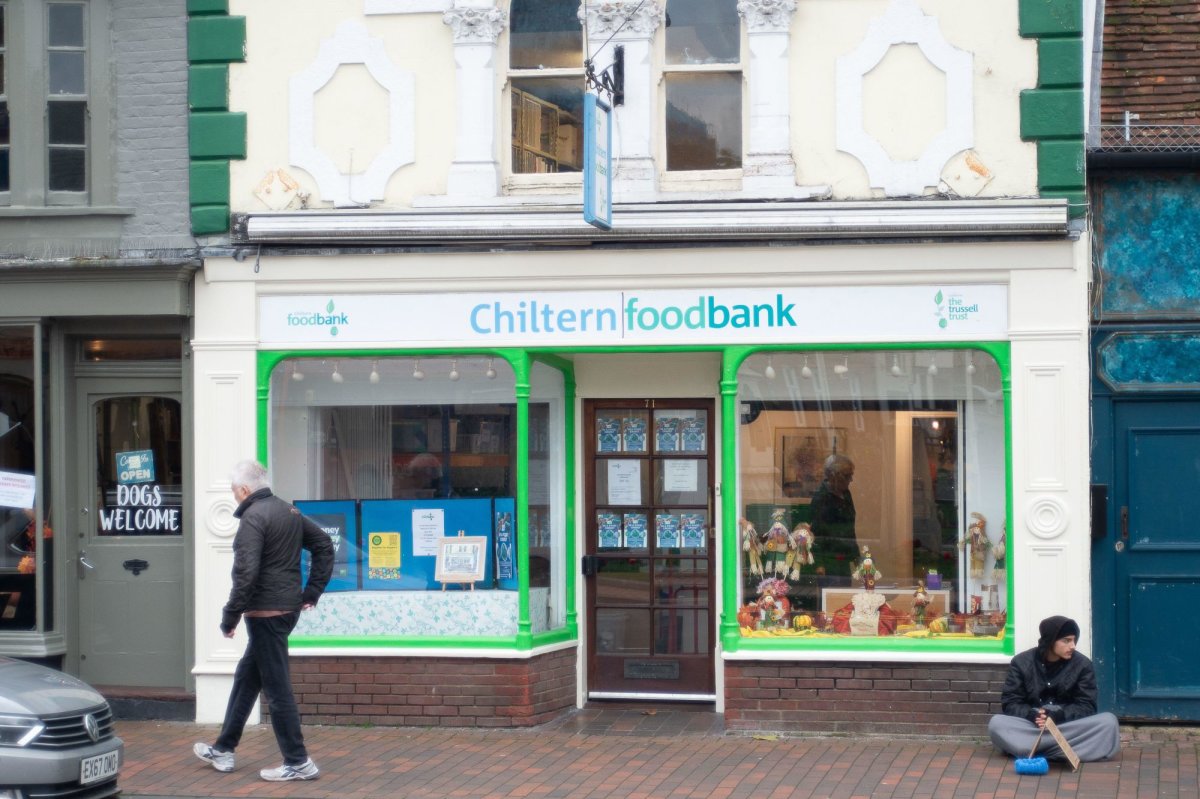
5 min read
A chorus of charities have warned that low-income families face feeling “worse off” this winter than they did last due to the weight of ongoing cost-of-living pressures.
Labour pledged to help alleviate the cost of living ahead of their election victory in July, promising to lower energy bills and improve the country’s ailing public services.
Six months on from that landslide victory, charities are warning that the first Christmas since Keir Starmer became Prime Minister will be extremely tough for the country’s most impoverished people as strains on their finances continue to bite.
“The picture is bleak,” homeless charity Crisis CEO Matt Downie told PoliticsHome.
“I’m afraid the figures on homelessness are now the highest on almost every measure, the highest ever recorded.
“We have more than a quarter-of-a-million households in the worst forms of homelessness.
“Not just rough sleeping, but [people in] hostels, night shelters, bed and breakfasts… 160,000 children living in temporary accommodation.
“Everything’s flashing red in terms of the warning signs. They’re all there.”
Downie told PoliticsHome he was optimistic that the situation would improve in 2025 due to the Labour Government’s pledge to significantly increase house building.
Last week, the Ministry of Housing, Communities & Local Government announced £1bn in additional funding for local councils in England to tackle growing levels of homelessness.
“This largest-ever investment marks a turning point, giving councils the tools they need to act quickly and put in place support for people to tackle, reduce and prevent homelessness,” said Deputy Prime Minister and Housing Secretary Angela Rayner. “It’s time to turn the tide.”
Speaking to PolitcsHome before this announcement, Downie described the homelessness crisis as a “humanitarian situation”, adding “if only people could see the severity of need that’s out there”.
“We are seeing people whose state of physical and mental health is dreadful, who have been turned away by public services and told that they don’t qualify for anything.”
Simon Francis, co-ordinator at the End Fuel Poverty coalition, said the decision taken by Chancellor Rachel Reeves in the October Budget to scale back the winter fuel allowance would make the situation facing elderly households “worse” this winter.
“The level of people living in cold, damp homes hasn’t changed from last year at all,” he said.
Matt Copeland, head of policy and public affairs at National Energy Action (NEA), said the financial situation facing many households struggling with energy bills would feel worse than last year because they are suffering from diminished “financial resilience”.
The energy cap — the maximum companies can charge customers for energy — rose sharply around two years ago following Russia’s invasion of Ukraine and its impact on global energy prices. It has fallen since then but has remained at a relatively high level. Ofgem raised the cap in October and planning to do so again in January.
“Two years ago, when energy prices went to that even higher level, people couldn’t afford to pay that level, and therefore went into debt,” Copeland said.
“What’s happening now is that they still can’t afford the current level, but they’re being asked to pay for what they couldn’t pay for previously [in the form of debt].
“That’s what is really compounding the issue, and we know that being in debt to your supplier and having to repay that debt means can lead to mental health issues.”

Helen Barnard, director of policy, research and impact at food bank charity Trussell Trust, told PoliticsHome that demand for their service was still extremely high and “close to the record levels of need” the charity had seen.
“In particular, we are hearing from a lot of food banks that they’re struggling to keep up with a need in their communities, they’re having to manage their resources and capacity really closely,” said Barnard.
“The other thing that we’re hearing on the ground is that when local authorities and other services are struggling or having to cut back, that can make it much harder for people in those communities to be referred to our food banks.”
Rachelle Earwaker, senior economist at the Joseph Rowntree Foundation (JRF), said the latest cost-of-living data the charity had gathered showed there had been “absolutely no change at all” in terms of improvement of living standards since Labour’s win in July.
She said hardship levels were “really stuck” at where they were before the General Election and that “it’s going to take a lot to move them”.
The JRF is particularly concerned about what awaits vulnerable households this winter.
“5.4m low-income households said that they couldn’t afford enough food in the months prior to our October survey. That is really, really concerning. That is around half of this whole income group going into winter,” Earwaker told PoliticsHome.
“When we know that there is going to be more pressure on incomes — in terms of more money being needed for your heating, for energy bills — there’s so much more pressure around like traditional holidays for people like Christmas and over that period.”
JRF research shared exclusively with PoliticsHome earlier this month found that over 1.5m families had taken out loans to pay for special occasions like Christmas and birthday presents. Of those people, 74 per cent had taken out loans to pay for food, housing, or essential bills like council tax or energy,” according to the charity’s findings.
A Government spokesperson told PoliticsHome: “No person should be in poverty – that’s why we’ve extended the Household Support Fund again and have committed to investing £1 billion in homelessness services as we tackle the housing crisis.
“Alongside this, we are uprating benefits and the State Pension, increasing the National Living Wage and helping over one million households by introducing a Fair Repayment Rate on Universal Credit deductions, while our Child Poverty Taskforce develops an ambitious strategy to give all children the best start in life.”
PoliticsHome Newsletters
PoliticsHome provides the most comprehensive coverage of UK politics anywhere on the web, offering high quality original reporting and analysis: Subscribe


